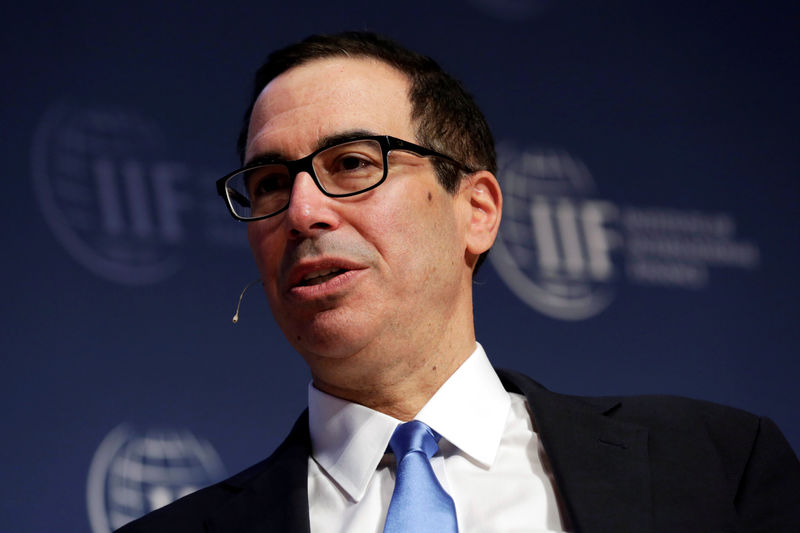(Bloomberg) -- The U.S. Treasury Department maintained longer-term debt sales for the seventh straight quarter at $62 billion and said it anticipates announcing an increase in coupon-bearing securities in February to help meet rising funding needs.
The department will sell $24 billion in three-year notes on Nov. 7, $23 billion in 10-year notes on Nov. 8 and $15 billion in 30-year bonds on Nov. 9, it said Wednesday in its quarterly refunding announcement of longer-term debt sales. That will raise new cash of about $19.3 billion.
Treasury said its borrowing needs will increase as the Federal Reserve reduces its balance sheet and given the outlook for wider fiscal deficits. At the next quarterly refunding announcement, the Treasury said on Wednesday it expects to announce gradual increases in nominal coupons and two-year floating rates notes in February. These changes will probably results in a “stabilization of the weighted average maturity of debt outstanding at or around the current levels.”
The magnitude and allocation of increases to auction sizes will depend in part on projections for the fiscal outlook, as well as feedback from market participants, according to the statement.
The Treasury Borrowing Advisory Committee, in the minutes of its latest meeting also released Wednesday, said its analysis shows a focus on increased issuance in 2-year, 3-year and 5-year maturities “is attractive.”
Dealer Outlook
Most primary dealers indicated expectations prior to Wednesday’s refunding statement that Treasury would lift coupon-bearing debt auction sizes by the first quarter of 2018 if it refrained from doing so this year. A rise in longer-term debt sales would be the first increase since November 2009. The debt-ceiling constraints and the slow start last month of the Fed’s balance-sheet runoff gave Treasury room to stick with bills for now, they said.
In the statement Wednesday, Treasury said the government will be able to meet its payment obligations through January, using extraordinary measures if Congress doesn’t extend the current debt-limit suspension period or raise the cap by Dec. 8.
The U.S. posted its largest budget deficit since 2013 in the fiscal year that just ended on Sept. 30, and most economists predict that President Donald Trump’s tax-reform plan will worsen deficits. The bigger budget shortfalls they foresee would add to the more than $10 trillion-plus rise in federal debt over the next decade that the Congressional Budget Office is already forecasting. Treasury issuance would need to rise if the budget shortfall increases.
The Treasury statement didn’t discuss the department of ultra-long bond issuance, nor had Treasury instructed BAC to specifically address the topic in preparation for its meeting.
Treasury Secretary Steven Mnuchin this week said he hasn’t seen much demand for issuing ultra long-term debt after his department examined investor enthusiasm for maturities of more than 30 years. The government typically seeks regular and steady demand for its bond issuance, and Mnuchin has said a one-time sale for an ultra-long bond isn’t an option.
(Updates with details in refunding statement from third paragraph.)
